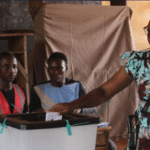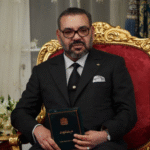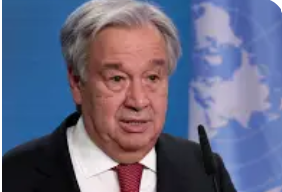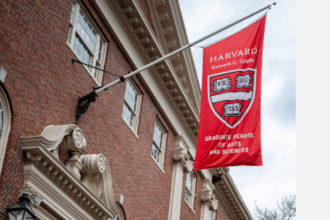By Mario Labrador
ABIDJAN, IVORY COAST – Once hailed as the architect of Ivory Coast’s remarkable economic recovery and a champion of stability after years of civil strife, President Alassane Ouattara’s prolonged tenure is increasingly seen by critics and international observers as a double-edged sword, progressively weakening the nation’s democratic institutions and diminishing its global standing. What began as a widely supported mandate to rebuild has, for many, morphed into an entrenched rule that stifles dissent and casts a long shadow over the country’s democratic future.
Ouattara’s ascent to power in 2011, following a brutal post-election crisis, was initially viewed as a triumph for democratic principles and a promise of renewed prosperity. Under his leadership, Ivory Coast experienced impressive economic growth, driven by key investments in infrastructure and a robust cocoa sector. His government was lauded by international financial institutions and Western partners for its focus on macroeconomic stability and attracting foreign investment.
However, the tide began to turn with the controversial decision by Ouattara to seek a third term in the 2020 presidential elections. Despite the constitution limiting presidents to two terms, Ouattara’s camp argued that a constitutional revision in 2016 reset his term count, allowing him to run again. This move, following the unexpected death of his chosen successor, Prime Minister Amadou Gon Coulibaly, ignited widespread opposition and violent protests that left dozens dead.
Domestic Erosion of Leadership:
Domestically, Ouattara’s extended stay has fostered a climate of political tension and disillusionment. Key indicators of this weakening include:
- Shrinking Political Space: Opposition leaders and activists have faced arrests, harassment, and disqualifications. Critics point to a crackdown on dissent, limiting freedom of assembly and expression. Major opposition figures like Laurent Gbagbo and Henri Konan Bédié were either excluded from the electoral process or faced significant hurdles, further polarizing the political landscape.
- Weakened Succession Planning:Â The lack of a clear, accepted successor within the ruling RDR party has created an atmosphere of uncertainty. Ouattara’s reticence to truly empower a new generation of leaders, culminating in his third-term bid, has stunted the development of robust democratic succession mechanisms, leaving the country vulnerable to future instability.
- Increased Political Polarization:Â Despite calls for national reconciliation, the handling of the 2020 election reignited old divisions and created new ones. The government’s firm hand against protests and perceived political opponents has deepened mistrust between the ruling party and a significant portion of the populace, undermining the fragile national unity Ouattara once championed.
- Institutional Overreach:Â Critics argue that the executive branch has increasingly exerted influence over other state institutions, including the judiciary and the electoral commission, raising concerns about their independence and ability to act as checks and balances.
Diminished Global Standing:
Internationally, Ouattara’s image has transitioned from that of a democratic savior to a leader increasingly viewed through the lens of authoritarian creep, impacting Ivory Coast’s global standing in several ways:
- Loss of Democratic Credibility:Â Once a beacon of post-conflict reconstruction and democratic consolidation in West Africa, Ivory Coast’s perceived circumvention of term limits has tarnished its reputation. Western partners, while acknowledging economic gains, have expressed growing concerns about the country’s democratic trajectory, often issuing more muted congratulations than previous outright endorsements.
- Moral Authority in ECOWAS:Â In a region grappling with a resurgence of military coups (Mali, Burkina Faso, Niger, Guinea), Ouattara’s actions have, for some, weakened the moral authority of ECOWAS (Economic Community of West African States) to firmly condemn term-limit evasions elsewhere. While Ouattara has been vocal against military takeovers, his own constitutional maneuvers complicate Ivory Coast’s position as a regional democratic champion.
- Investor Perceptions:Â While economic indicators remain strong, prolonged political uncertainty and questions surrounding democratic stability can, in the long term, deter certain types of foreign direct investment that prioritize predictable governance and strong institutions over short-term returns.
- Human Rights Scrutiny:Â International human rights organizations have increasingly highlighted issues related to freedom of assembly, expression, and the treatment of political opponents, drawing more critical scrutiny to Ivory Coast on the global stage.
As Ivory Coast approaches its next electoral cycle in 2025, the shadow of Ouattara’s extended rule looms large. While his supporters emphasize the undeniable economic progress and stability he has brought, a growing chorus of voices argues that true progress for Ivory Coast must ultimately rest on the foundation of strong, independent institutions and a vibrant, inclusive democracy – elements that many believe have been inadvertently weakened by the very length of its once-celebrated leader’s tenure. The challenge for Ivory Coast now lies in navigating a future that balances economic prosperity with a genuine commitment to democratic renewal and succession.









